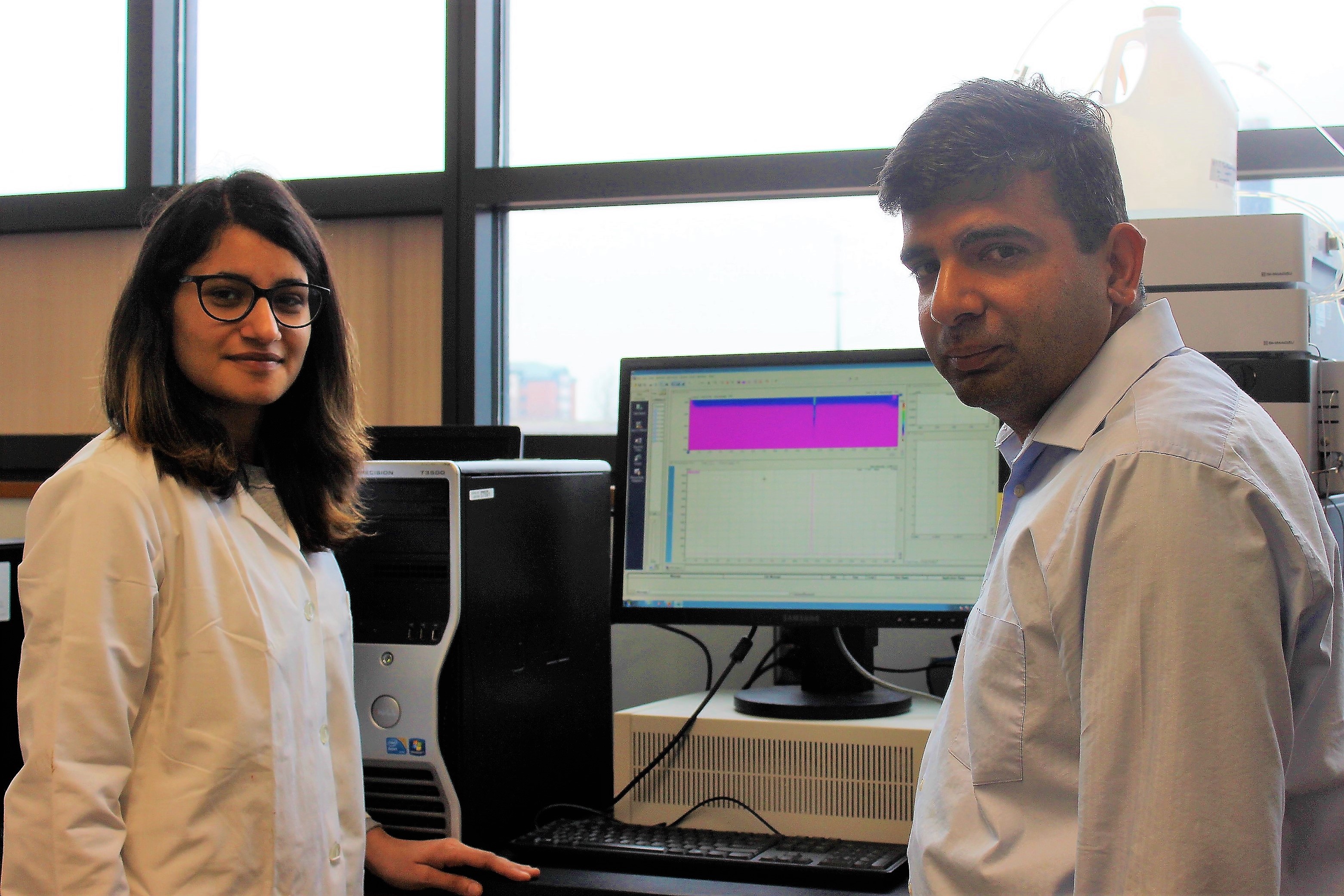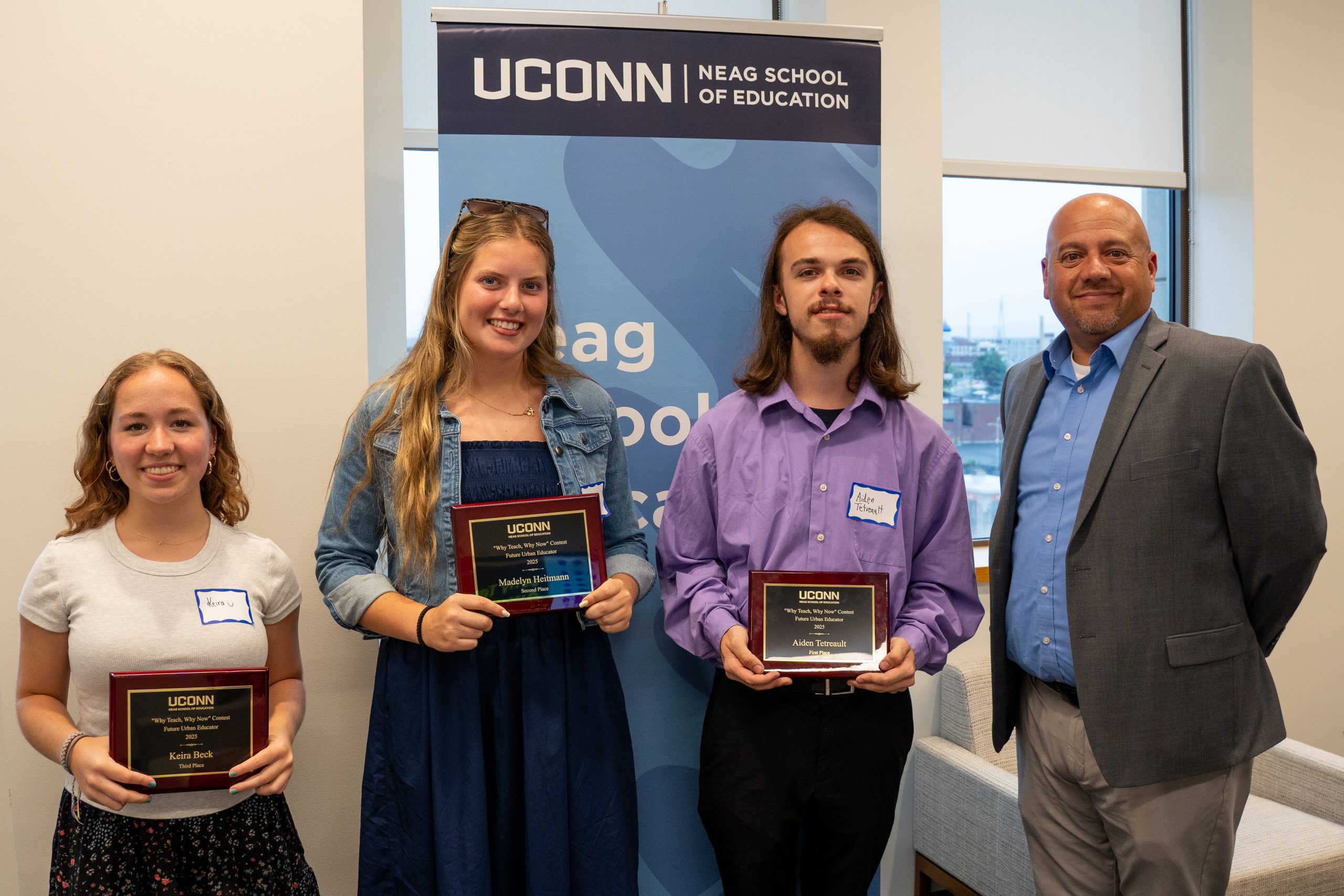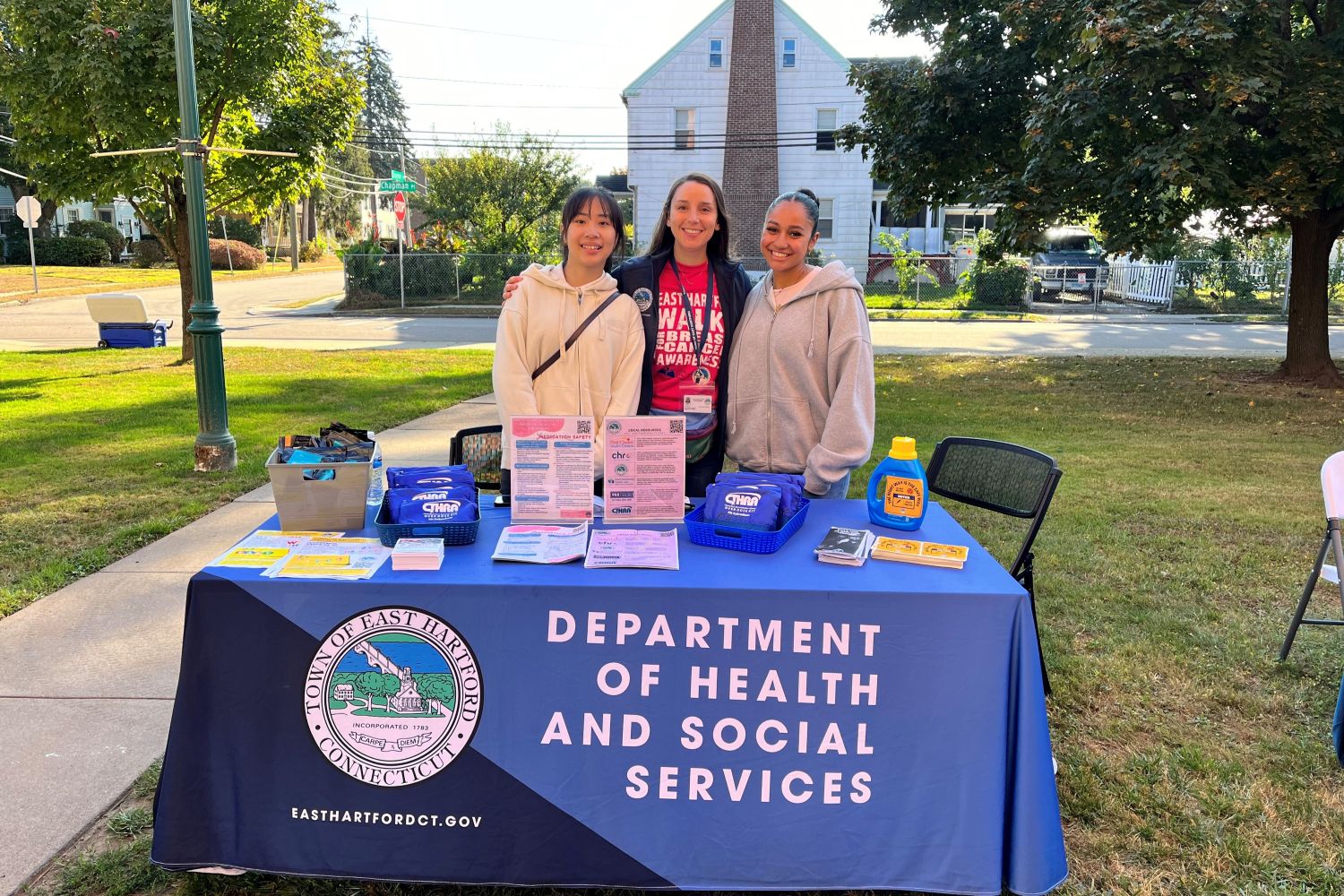UConn School of Pharmacy graduate students spent much of summer 2021 focused on research. Graduate students interested in Medicinal Chemistry, Pharmacology and Toxicology, or Pharmaceutics, connect with Department of Pharmaceutical Sciences faculty and often work in that member’s lab assisting with ongoing funded work.
“One of our core missions as academicians and scholars in the School of Pharmacy is to train the next generation of pharmaceutical sciences scientists by providing them the skills set and critical thinking capabilities to meet the emerging challenges of modern science, whether basic or applied. Our department has a rich history of providing highly talented, well-rounded scientists to the state of Connecticut, the nation and abroad. We are very proud of our trainees, both present and past, and the impact of their contributions on a constantly evolving scientific landscape,” says Dr. José Manautou, Department Head of Pharmaceutical Sciences, and Professor of Toxicology.
Seven graduate student researchers provide one-minute clips of their work below:
Vishal Kasina (Ph.D. candidate ’25)
Research focus: Enhancing miRNA activity using PLGA nanoparticles loaded with miRNA mimics
Award supporting work: R.E. Singiser Memorial Fellowship
Faculty Mentor: Dr. Raman Bahal
“Vishal is making excellent progress in developing new nanotechnology-based tools to deliver RNA mimics for cancer therapy. In another project, he is actively working in collaboration with Dr. Greg Sartor’s lab to expand RNA-based therapeutics to treat substance use disorder. We are confident that the outcome of his projects will open new avenues for genetic medicine.” – Dr. Raman Bahal
Wei-Chung (Jimmy) Luo, BS (Ph.D. candidate ’22)
Research focus: Impact of Formulation and Freezing Variations on the Quality and Stability of Freeze-Dried Nanoparticles
Funded by: Dane O. Kildsig Center for Pharmaceutical Processing Research (CPPR)
Award supporting work: Gerald J. Jackson Memorial Fellowship Award in 2021
Faculty mentor: Dr. Xiuling Lu
“Jimmy is keen on understanding and overcoming the stability challenges of complex nanoparticle-based drug delivery systems during freeze-drying process. These systems, which have attracted increasing attention in the recent years, are challenging to manufacture for long term storage on a large scale due to the complexity of nanoparticles. Jimmy has developed a novel approach for investigating these highly desired freeze-fried nanoparticle systems by using microstructure-based evaluations so that he can observe changes of nanoparticles during freezing in real time. This allows for efficient optimization of the formulation and freeze-drying process. Under co-instruction with Dr. Robin Bogner, Jimmy has become a freeze-drying expert!” – Dr. Xiuling Lu
Shipra Malik, MS (Ph.D. candidate Dec. ‘22)
Research focus: Targeting Genomic DNA and RNA for GeneTherapy
Funding by: NIH (National Institute of Health)
Awards supporting work: Karl A. Herzog fellowship; UConn Cross-disciplinary fellowship in Molecular and Cell Biology (MCB) and Pharmaceutical Sciences (UConn); Gerald J. Jackson Memorial fellowship (UConn)
Faculty mentor: Dr. Raman Bahal
“Shipra is an exceptionally multitasking and diligent Ph.D. candidate who took the challenge of developing RNA and DNA-based precision therapeutics to target dreadful diseases like pediatric lymphoma, Pediatric glioblastoma, and sickle cell disease. She is developing novel strategies at the interface of nucleic acid chemistry and drug delivery, emphasizing gene editing and targeting-based treatments.” – Dr. Raman Bahal
Tanu Mehta, MA (Ph.D. candidate ’23)
Research focus: Mitigation of Tribocharging in Pharmaceutical Powders using modified V-Blender
Award supporting work: UConn START Preliminary Proof of Concept Fund
Mentor: Dr. Bodhi Chaudhuri
“Pharmaceutical industry involves handling of powders on a large scale for manufacturing of solid dosage forms (tablets/capsules) as they constitute about 85% of all dosage forms. Considerable static-charge generation significantly affects the granular flow creating industrial storage problems such as jamming, segregation and unfortunately, industrial fire explosions in the presence of volatile solvents. Moreover, pharmaceutical powders are mostly insulators and have small particle size with low bulk density which makes them accumulate and retain electrostatic charge for a long time. Tanu is working on fabricating two novel charge mitigating V-blenders (following the good manufacturing practice (GMP) standard), one of which is already showing significant reduction in static charge buildup of the powder being blended.” – Dr. Bodhi Chaudhuri
Akshay Narula, MS (Ph.D. candidate ’25)
Research focus: Effect of temperature on the destabilization mechanisms of amorphous drug aggregates in solution
Funding by: Dane O. Kildsig Center of Pharmaceutical Processing Research (CPPR)
Faculty mentor: Dr. Na Li
“We are very lucky to have Akshay diligently working in the lab during the pandemic. He is exploring to uncover the growth mechanisms of soft nanoparticles in both solution- and solid-state. Combining fundamental knowledge with industrial applications, his work will address an important question at the interface of pharmaceutical processing, material sciences, as well as colloidal and interfacial sciences. We look forward to exciting results of this project from his dedication and persistent effort.” – Dr. Na Li
Bo Wan, MS (Ph.D. candidate ‘23)
Research focus: Impact of polymer source variation on quality and performance of parenteral microspheres
Funding by: Karl A. Herzog Fellowship (May 2021); IPEC Foundation -Graduate Student Award (August 2021)
Faculty mentor: Dr. Diane Burgess
“Bo’s research involves the investigation of the impact of polymer source variations on the properties and performance of different long-acting parenteral drug products (specifically, leuprolide acetate and risperidone microspheres). In particular, he is studying differences in polymer characteristics due to source variations and their relationship to the final formulation properties and the in vitro/in vivo performance of the microspheres. Through this understanding, criteria on polymer sameness can be established for regularity guidance which will help promote the development of generic drugs for these costly parenteral products, making more affordable medication available for patients without compromising quality and safety. This is very significant as the polymer is a key component of the microsphere dosage forms and controls the drug release rate and hence the performance of the medication. Bo is developing in vitro-in vivo correlation models so that the performance of microsphere dosage forms can be predicted. Consequently, Bo’s work will help to reduce human studies and pave the way for future biowaiver applications. Ultimately, this work will lead to more affordable and more widely available generic complex parenteral microsphere products for the public.” – Distinguished Professor of Pharmaceutics, Dr. Diane J. Burgess
Gowtham Yenduri, MS (Ph.D. candidate Dec. ’21)
Research focus: Research, development of novel lipid-based formulation using a continuous manufacturing platform for complex parenterals
Funding: supported by multiple U.S. FDA grants.
Awards supporting work: R.E. Singiser Memorial Fellowship in 2019, 2020, and 2021
Mentor: Dr. Diane Burgess
“Gowtham is an ambitious and dedicated researcher who utilizes his diverse skill set in his impactful research. Gowtham’s research is focused on development and production of novel lipid-based formulations using our continuous manufacturing platform for complex parenterals. His research also involves developing standards for liposomes, with precise particle size and high stability. This work is innovative and is at the cutting edge of pharmaceutical manufacturing. Continuous manufacturing of pharmaceutical products brings enormous benefits to the public in terms of improved product quality and cost reduction. There is also considerable energy reduction in continuous processing and hence reduction in the carbon footprint.
I also would like to point out that Gowtham has been heavily involved in service while at UConn. He has been the Chair of the AAPS Student Chapter and is currently the Chair of the ISPE Student Chapter. Even more significant is his leadership at the national and international levels. He is currently Chair of the AAPS Student Community (AAPS is the American Association of Pharmaceutical Scientists and has a high proportion of international members). – Distinguished Professor of Pharmaceutics, Dr. Diane J. Burgess
Learn more about graduate student opportunities in the School of Pharmacy’s Department of Pharmaceutical Sciences.



